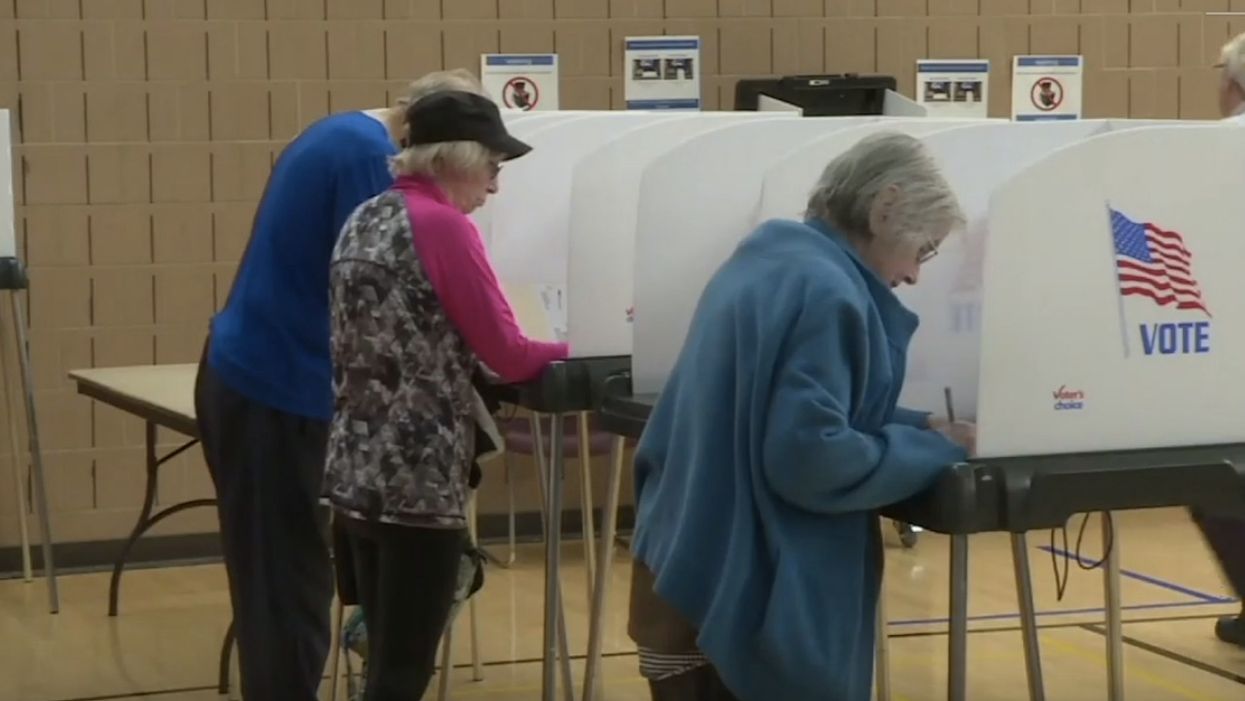
Image source: YouTube screenshot

'What happens in the U.S. has immense, tangible consequences on the rest of the world'
A journalist who gained some notoriety for first reporting that actor Liam Neeson said he walked the streets decades ago hoping a black man would accost him so he could kill him in revenge for a raped friend has something new to share.
The headline of Clemence Michallon's op-ed for the Independent spells it out: "America should allow other countries to vote in the 2020 election."
Michallon — who hails from France but lives in the U.S. — wrote that "we have seen how much the results of the U.S. presidential vote impact not just the 50 states, but the rest of the planet, too. And if the future of foreign countries is shaped to a significant extent by [what transpires] on U.S. Election Day, shouldn't they get a say in who gets to lead the most powerful nation in the world for the next four years?
"In other words," she emphasized, "shouldn't foreign countries have a right to vote in the U.S. presidential election?"
More from Michallon:
I know, I know. The idea sounds so absurd, so outrageous that it's hard to know where to begin your rebuttal. I have floated it around, timidly, in bars and at various dinner parties over the years, and let me tell you — it's hard to get people to agree with me. And I get it: it's never been done. I will probably never be done. But last week, a terrorist killed 50 people in two mosques in Christchurch, New Zealand. The alleged gunman, who had referred to himself as a white nationalist, viewed Donald Trump as "a symbol of renewed white identity." So, yes, I think it's high time to acknowledge the fact that what happens in the U.S. has immense, tangible consequences on the rest of the world, and I am tired of crossing my fingers hoping that American voters will do the right thing.
Michallon's first rationale for letting non-Americans help choose the next commander-in-chief is President Donald Trump's skeptical stance on climate change: "It goes without saying that whatever the U.S. does or does not do to limit the effects of global warming impacts every single being, human or otherwise, on this planet"
The other reason is the economy, she wrote, noting that last year "we were warned that tensions between the U.S. and its main trading partners could precipitate global trade turmoil similar in scale to the 2008 financial crisis. Whoever gets to sit in the Oval Office, then, plays a major role in shaping the state of our wallets as well as the state of the planet. Is it really that outrageous that people around the world might want to have a say on who runs the show?"
Then came the shocker.
"I am, of course, aware that the U.S. is extremely unlikely to go along with my idea," Michallon added. "This isn't a country that's particularly known for avidly seeking external input. And of course, there's the idea that the right to vote is intrinsically tied to residence, and that those who don't live in a given country aren't qualified to make a call on what goes in said country."
More from her op-ed:
Except things are more complicated, and more nuanced than that. Take, for example, the idea that living in a country is a condition to having the right to vote there. Permanent residents such as myself, also known as green card holders (also known as people who aren't U.S. citizens but live and work in the U.S. full-time) pay the same income tax as U.S. citizens, but don't get to vote. Naturally, U.S. citizens (like citizens of many other countries) still get to vote for their president even if they permanently move to a different country. All this to say: there is an established disequilibrium between who gets to vote in the U.S. presidential election and who arguably has the most skin in the game.
If that sounds perhaps a tad half-baked, consider also that Michallon's soley how-it-would-work suggestion that passed for "slightly" doable was restricting the non-U.S. vote to NATO member states "and/or historical allies." Yup.
She closed saying she's certain that readers of her immodest proposal will ask: What if folks from other countries wanted to vote in the French presidential election?
"Well, France is currently about five spots behind the U.S. in the ranking of the world's most powerful nations, and its GDP is more than seven times lower," Michallon noted. "But sure, should France ever have the kind of political and cultural influence the U.S. currently yields, then I'd be inclined to let others have a say. In fact, I might even vote in favor of it."
Ecoutez, Ms. Michallon: I just asked around, and we Americans aren't chomping at the bit to vote for the next French president. But we still love your wine, cheese souffle, coq-au-vin, and boeuf bourguignon. (And don't skimp on the sauce.)